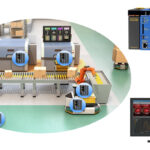ASIA ELECTRONICS INDUSTRYYOUR WINDOW TO SMART MANUFACTURING
Neural Networks Play Key Role in Aluminum Alloys
Showa Denko K.K. (SDK) has developed neural network models*1 that accurately predict mechanical properties of 2000-Series aluminum alloys*2. SDK developed the models in collaboration with National Institute for Material Science (NIMS) and The University of Tokyo (UTokyo).
The developed models accelerate the process to explore optimal compositions and heat-treatment conditions for aluminum alloys. In addition, these can also gauge strength at extreme temperatures of aluminum alloys. Furthermore, the models also help shorten development time to about half to one-third, which was not easy.
Challenges of High-Performance Aluminum Alloys
Aluminum has various applications because it is lighter than iron and easy to work. However, they work as an aluminum alloy containing copper, magnesium, and other additive elements because pure aluminum has low strength. What industry is looking now is the development of aluminum alloys that can maintain sufficient strength for a particular use at high temperatures. This is because conventional aluminum alloys lose strength when their temperature rises to 100℃ or higher.
However, the mechanical properties of aluminum alloys depend on many process factors, including additive elements and heat-treatment conditions. Developing high-performance aluminum alloys takes time because they require developer experience and knowledge on analysis and evaluation.
Aiming to solve these problems, SDK has been working Council for Science, Technology, and Innovation (CSTI), Cross-ministerial Strategic Innovation Promotion Program (SIP). Particularly, they are working on Materials Integration for Revolutionary Design System of Structural Materials.
With this, SDK, NIMS, and UTokyo have developed a computer system using neural networks, an artificial intelligence (AI) algorithm. The purpose is to accelerate the development of materials and explore aluminum-alloy designing conditions that realize optimal mechanical properties.

Evaluation in Short Time
Accordingly, SDK focused on 2000-Series aluminum alloys and utilized design data of 410 records of aluminum alloys listed in public databases. Moreover, it also developed neural network models that accurately predict the strength of aluminum alloys at various temperatures ranges.
In addition, SDK optimized the architecture and parameters of the neural network with Bayesian inference*3 by applying the replica-exchange Monte Carlo Method*4. This enabled SDK to evaluate aluminum alloy strength and its prediction uncertainty.
Moreover, this neural network model can estimate the strengths of aluminum alloys under 10,000 different conditions within 2sec. Thus, it became possible to evaluate aluminum alloys with various design factors comprehensively in a short time.
Long-Term Vision
Furthermore, SDK successfully developed an inverse design tool, which suggests a set of aluminum-alloy design conditions that maximizes the probability of satisfying the desired strength at arbitrary temperature. Thus, it enables us to design high-strength aluminum alloys at high temperatures above 200℃.
Showa Denko Group’s long-term vision include a commitment to make the most out of artificial intelligence and computational science. SDK said it will continue to accelerate material development programs by applying the results to future activities to develop various new materials. Furthermore, it will also provide our customers with solutions for their problems, thereby contributing to the prosperity of society.
Notes:
*1. Neural network model: Neural network model is a machine learning algorithm that imitates the human brain’s neural network. A typical neural network model has input, hidden, and output layers. The existence of a hidden layer enables a neural network model to learn and estimate relationships between the input and output of complicated events. Statistical machine learning with neural network models with many hidden layers is called “deep learning.”
*2. 2000-series aluminum alloys: 2000-series aluminum alloys contain copper and magnesium as additive elements and have high mechanical strength. Duralumin and super duralumin are well-known 2000-series aluminum alloys. 2000-series aluminum alloys are used as materials for the bodies of aircrafts and industrial parts (screws, gears and rivets, etc.).
*3. Bayesian inference: Bayesian inference is a method of statistical inference that statistically infers causes from observed facts based on Bayes’ theorem. In this Development, we constructed neural network models that reproduce correlation between design conditions and mechanical properties of aluminum alloys with Bayesian inference.
*4. Replica-exchange Monte Carlo Method: Replica-exchange Monte Carlo Method is one of the computational methods to simulate Bayesian inference with a computer. It is known to converge to a global minimum solution faster than other methods when solving multimodal problems with many local minimum solutions. This enables us to explore a wide range of parameter space efficiently to find the optimal solution.




